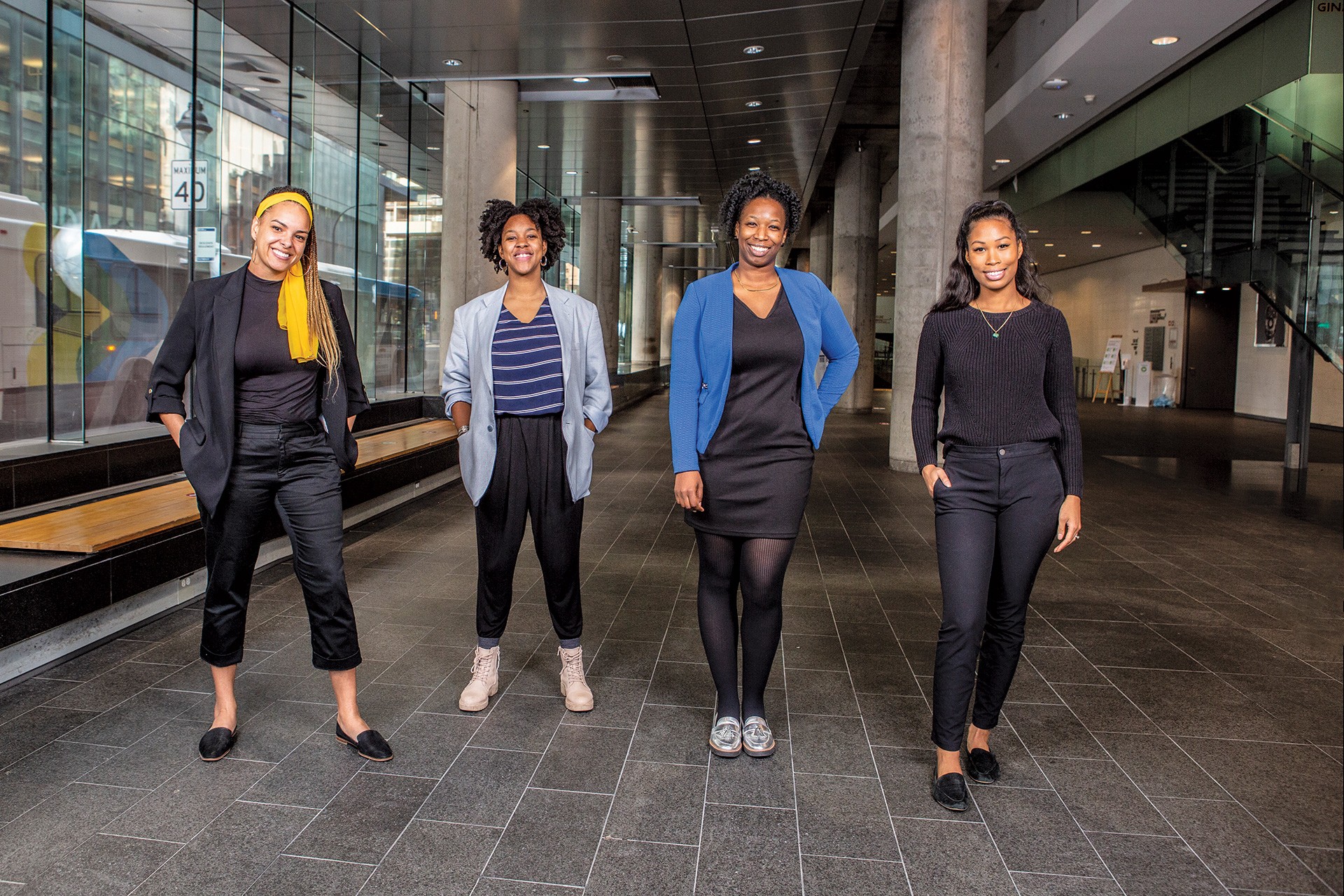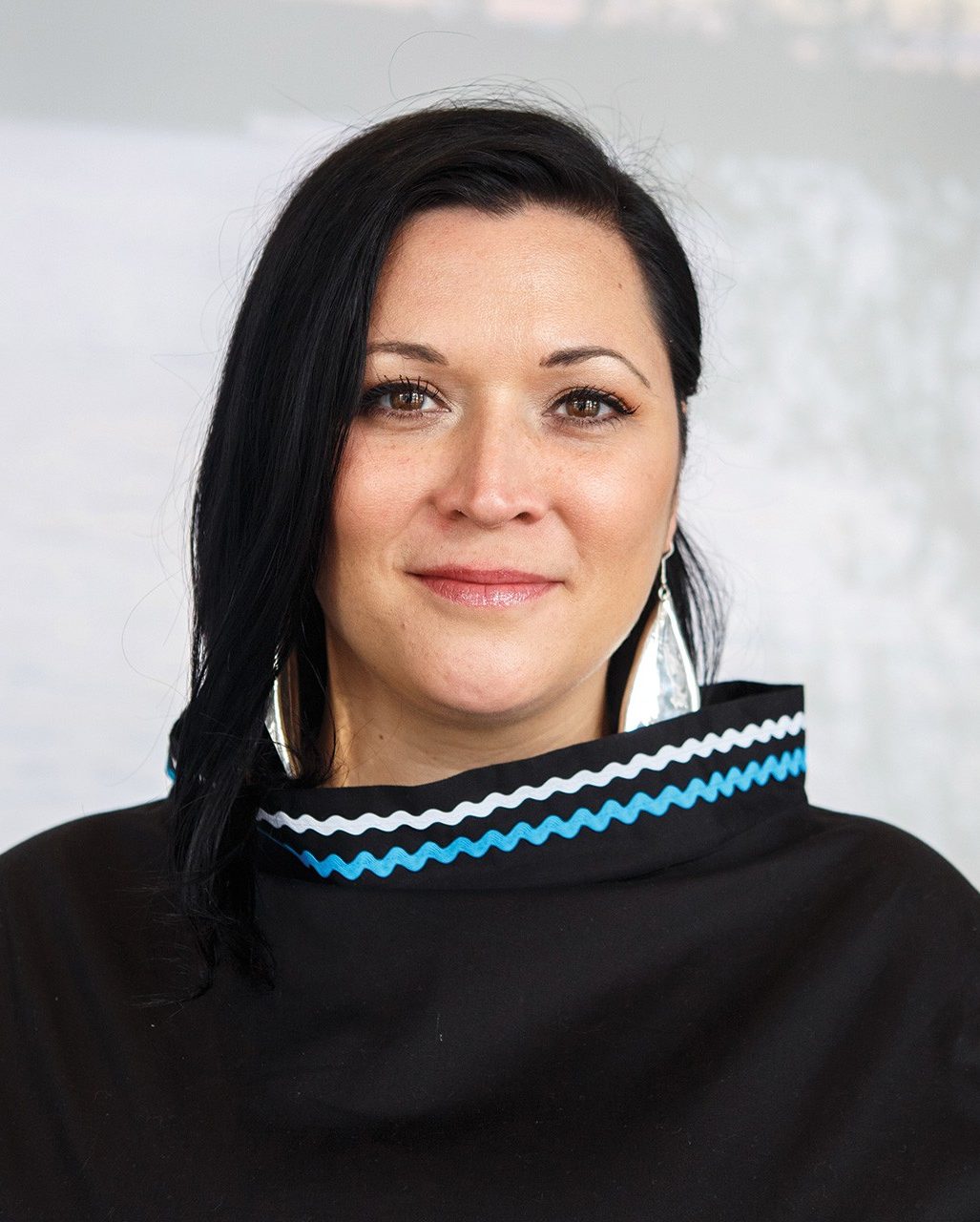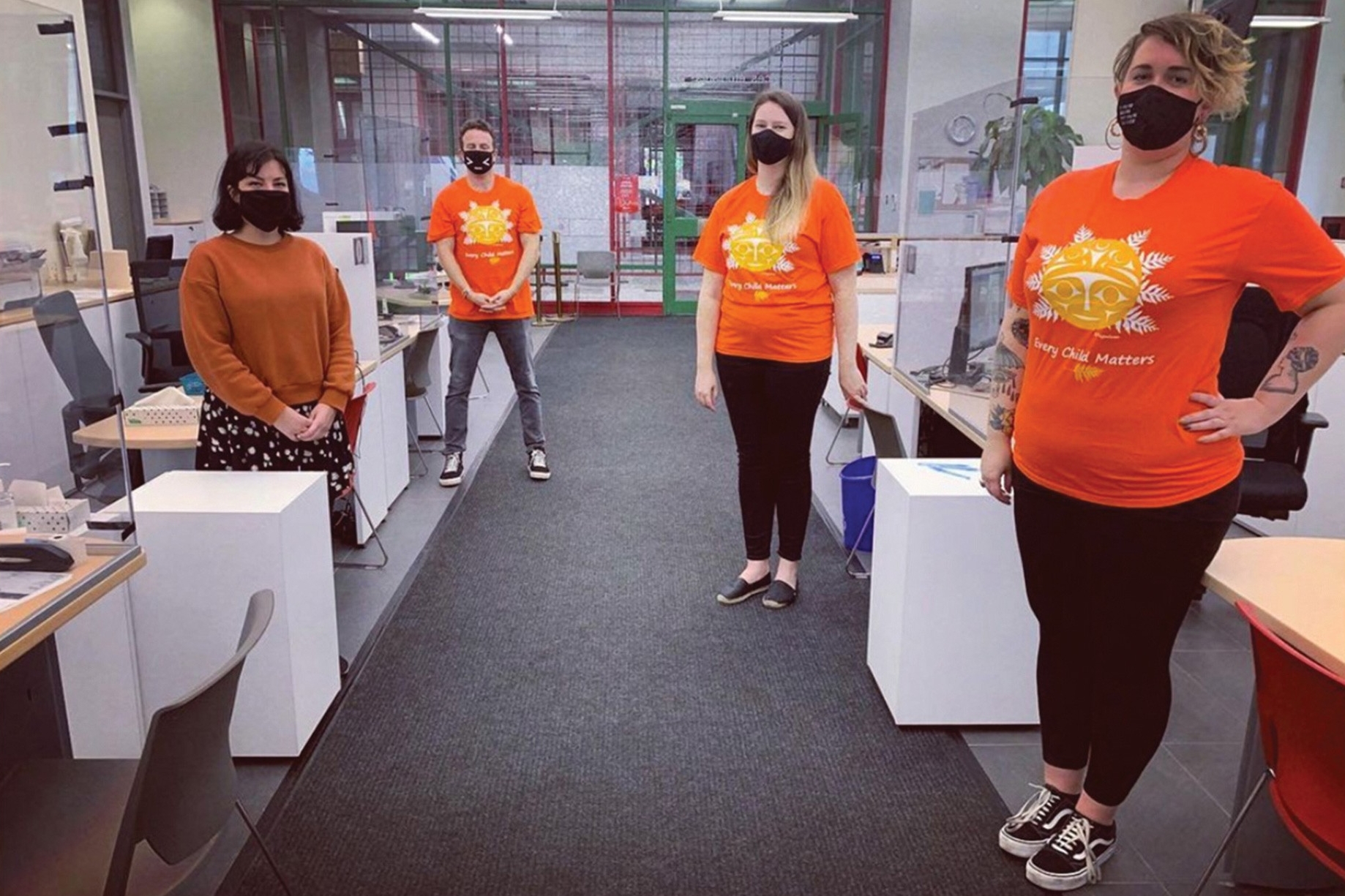NEXT-GEN
ENGAGEMENT
Accelerating progress for our community and beyond
2022 HIGHLIGHTS
Celebrating Black student achievement, determination and grit
While celebrated on June 19 in the United States since 1865, in 2021 Juneteenth became an American federal holiday, marking the freeing of enslaved Black people in Texas, the last remaining state in the Confederacy to abolish institutional slavery.
At Concordia, the date marked another festivity — its first annual Black Graduation Celebration. The university recognized students for their excellence, and attendees shared tears of joy, relief and some mixed emotions.
The online event kicked off with an introduction by the Black Perspectives Office founding coordinator and manager, Annick Maugile Flavien, who diligently organized the celebration with the support of her team and a small army of contributors. Concordia President Graham Carr addressed the Black graduates.

Equity Office appoints its inaugural executive director
Lisa White began as the first executive director of Concordia’s Equity Office. White brings deep knowledge and expertise in applying and administering Concordia’s Code of Rights and Responsibilities, a strong focus on outreach and education and close to a decade of experience working to address issues of discrimination and equity within the university community.
The Equity Office serves as an umbrella unit to develop and implement the university’s equity, diversity and inclusion action plan, coordinate and harmonize related resources and initiatives across the university and provide services and support to the community.
Angélique Willkie assumes special advisor to the provost role
Angélique Willkie, associate professor of contemporary dance, was named special advisor to the provost on Black integration and knowledges. The new role aligns with the renewed global conversation on anti-Black racism and complements Concordia’s ongoing efforts to address anti-Black racism.
A core responsibility of Willkie’s new position is to continue chairing the President’s Task Force on Anti-Black Racism and, ultimately, to present Concordia’s president with a comprehensive set of recommendations and an action plan to combat anti-Black racism at the university.
Concordia signs Scarborough Charter to address anti-Black racism
Concordia joined more than 40 universities and colleges nationwide by signing the Scarborough Charter, which commits the institutions to tackle the realities of anti-Black racism. The charter stemmed from initial meetings held by Canadian universities in summer and fall 2020 at the National Dialogues and Action for Inclusive Higher Education and Communities forum. It outlines principles, actions and commitments to collectively acknowledge, identify and actively address exclusion by redressing anti-Black racism and fostering equity and inclusion.
Oral history summer institute emphasizes intersectional feminism
Affiliates of Concordia’s Centre for Oral History and Digital Storytelling and the Scottish Oral History Centre at the University of Strathclyde Glasgow met virtually to exchange new research in the field, around the theme Embodied Stories: Gender, the Body and Oral History.
“I gathered that oral historians continuously discover the unexpected in their research if they talk to women,” says Cynthia Hammond, art history professor and event co-organizer. “For example, Leyla Vural presented her research on trans women activists at Stonewall who have not been well remembered as part of that watershed moment in LGBTQIA2+ politics.”
Investigative journalism project looks at Indigenous communities’ water and health
Concordia’s Institute for Investigative Journalism launched its Clean Water, Broken Promises project, a collaborative investigation focused on water systems in Indigenous communities across Canada. The initiative involves 75 students from 10 universities and colleges nationwide as well as nearly two dozen journalists from six news outlets. More than 30 articles stemming from the experiences of 122 water-plant operators were published.

Heather Igloliorte
Indigenous Futures Research Centre opens
Concordia launched the first university-recognized Indigenous research centre, helmed by Jason Edward Lewis, Concordia University Research Chair in Computational Media and the Indigenous Future Imaginary (Tier 1), and Heather Igloliorte, Concordia University Research Chair in Circumpolar Indigenous Arts (Tier 1).
The centre represents years of hard work and a huge collective leap forward for Indigenous-led scholarship at the university. “Our plan is to expand outward and touch every aspect of the university as we go forward,” Igloliorte says. “With new Indigenous faculty joining the university and future positions realized, we will grow in dynamic ways.”
Concordians mark Orange Shirt Day
On September 30, many Concordians donned orange shirts to recognize Orange Shirt Day. The national event honours the survivors of Canada’s residential schools. Created around the story of Phyllis Webstad, who had her own orange T-shirt confiscated and replaced with a school uniform in 1973, Orange Shirt Day also raises awareness of the intergenerational impact of the residential school system.
Hilary Rose, associate professor of applied human sciences, and other applied human sciences faculty members wore orange shirts at Concordia’s Shuffle walkathon earlier in September and raised more than $3,000 for an Indigenous entrance scholarship.

Young queers are changing what it means to live in LBGTQ neighbourhoods
Julie Podmore, affiliate assistant professor of geography, planning and environment, used Montreal’s Mile End district as a case study of the queer inner city for a chapter in the book The Life and Afterlife of Gay Neighborhoods: Renaissance and Resurgence. The arrival of young queers into the neighbourhood coincided with its emergence as a centre of indie culture.
“As I conceived of this project roughly a decade ago, people were starting to talk about the ‘de-gaying’ of gay villages and the emergence of queer-friendly neighbourhoods. I saw that happening in Mile End,” Podmore says.
John Molson School of Business earns gender-parity certification
For the second time, the John Molson School of Business earned a Parity Certification from Women in Governance. The Canadian not-for-profit organization supports women in their leadership development, career advancement and access to board seats across the country. In 2019, John Molson became the first business school in Canada to receive the certification.
“It is imperative that we work together to create and support opportunities for women to advance in the areas of leadership and governance, and to support true gender parity and equal opportunities for all genders,” says Anne-Marie Croteau, dean of the John Molson School.
Landscape of Hope expands its arts-based, resilience-focused activities
The Concordia-led Landscape of Hope initiative received nearly $430,000 to significantly expand its work researching hate speech and discrimination in Quebec. The funding enables the transdisciplinary team to hold workshops, create installations and host performative events around Montreal in collaboration with marginalized communities, including Black and racialized youth, and in Chicoutimi, Quebec, with Indigenous community partners.
Co-founder Vivek Venkatesh is UNESCO Co-Chair in Prevention of Radicalisation and Violent Extremism, director of Concordia’s Centre for the Study of Learning and Performance and professor of inclusive practices in visual arts. He says the financial support validates several years spent building interdisciplinary relationships between Concordia, other Quebec universities and community partners.